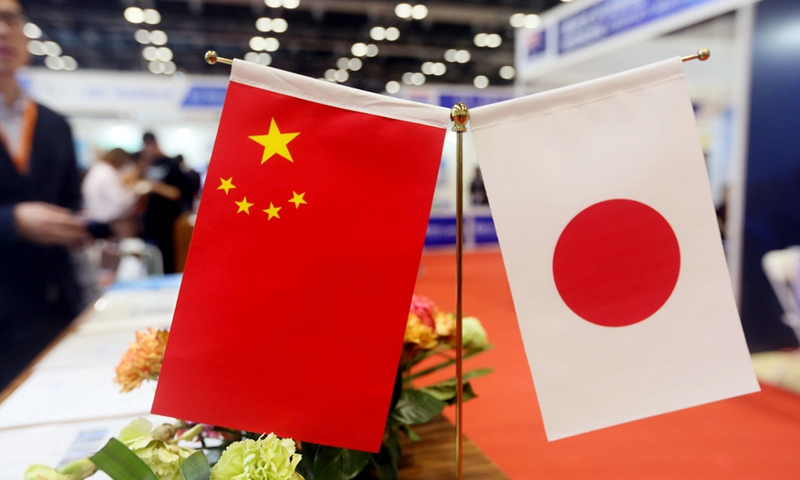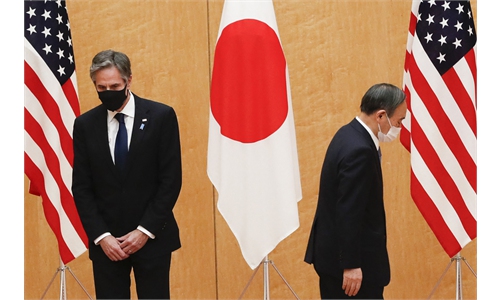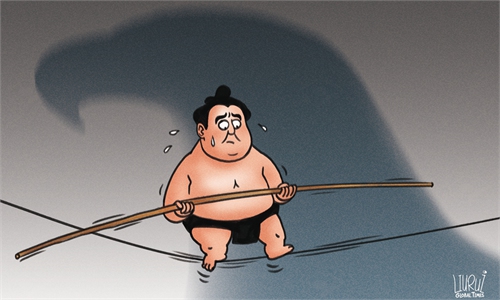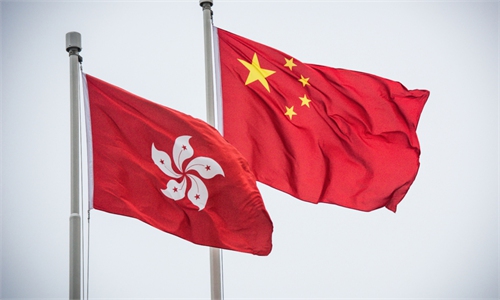Chinese FM makes ‘timely reminder’ for Japan to stop heading in wrong direction at crossroads of ties

File Photo: IC
With bilateral relations at a new crossroad, a message sent by Chinese State Councilor and Foreign Minister Wang Yi to his Japanese counterpart was a "timely reminder" for Tokyo to stop heading in the wrong direction and pull ties to the right track, Chinese observers said.China hopes that Japan, as an independent country, will come to view China's development in an objective and rational way, instead of being misled by some countries that are biased against China, Wang said during a phone call with Japanese Foreign Minister Toshimitsu Motegi on Monday.
Wang elaborated on China's principles and position over issues concerning the Diaoyu Islands and the South China Sea, and opposed Japan's interference in China's internal affairs involving Xinjiang and Hong Kong.
He urged Japan to abide by the basic norms governing international relations, respect China's internal affairs as close neighbor and refrain from overreaching.
The Chinese foreign minister's remarks came after bilateral ties soured with Japan's baseless accusation and interference in China's domestic affairs, such as Hong Kong and Xinjiang, during the signing of the joint statement with the US last month.
Faced with the complicated international situation, China and Japan, second and third largest economies in the world respectively, should follow the international trend, respect and trust each other, conduct mutually beneficial cooperation and jointly play a positive role in peace and development of the region and the world, Wang said.
Wang noted that the two sides should cherish and maintain the hard-won improvement and development of China-Japan relations, ensure that bilateral relations do not stall or backslide, and avoid any involvement in confrontations among major powers.
Wang Jian, an expert from the Chinese Academy of Social Sciences, told the Global Times that Japan's policy toward China has experienced turbulence since last year, and Washington is the biggest influence in this change.
"The US obviously doesn't want ties between China and Japan to get better, and Japan now is cooperating with the US on the latter's China policy," said Wang Jian, who warned Tokyo that such a move will eventually backfire.
Japan and the US are allies, but Beijing and Tokyo have signed the China-Japan Treaty of Peace and Friendship, which Japan is also obligated to honor, Wang Yi said.
2021 and 2022 are marked as "Year of Promoting China-Japan Cultural and Sports Exchanges," and in 2022, both countries will commemorate the 50th anniversary of the normalization of China-Japan diplomatic relations.
Wang Jian described the call between the Chinese and Japanese foreign ministers as "timely," which sends a signal to remind Japan of China's diplomatic bottom line and warned Japan not to become the US' anti-China vanguard in Asia.
Bilateral relations between China and Japan have hit a new crossroad, and the ball is in Japan's court for improving them, said the expert, noting that China has done its utmost to fix ties and create goodwill, and hopefully Japan can pull back ties to the right track.
Taking these events as opportunities, China is willing to continue to promote cooperation with Japan, make efforts to improve the relations between the two peoples, and bring a stable and healthy China-Japan relationship into the next 50 years, Wang Yi said.
Back in November 2020, the two sides agreed to cooperate and support each other in hosting the Tokyo Olympic Games and Beijing Winter Olympic Games to make these two major events a success.
Japanese Foreign Minister Toshimitsu Motegi said that the Japan-US alliance does not target any specific third party. He added that Japan attaches great importance to its relations with China and remains committed to ensuring the steady development of Japan-China relations.
He also noted that Japan is ready to strengthen exchanges and cooperation with China in various fields and maintain communication with China on mutual support in hosting the Tokyo Olympic Games and the Beijing Winter Olympic Games.
The foreign ministers also exchanged views on regional cooperation, climate change, the situation in Myanmar and other international and regional issues.




